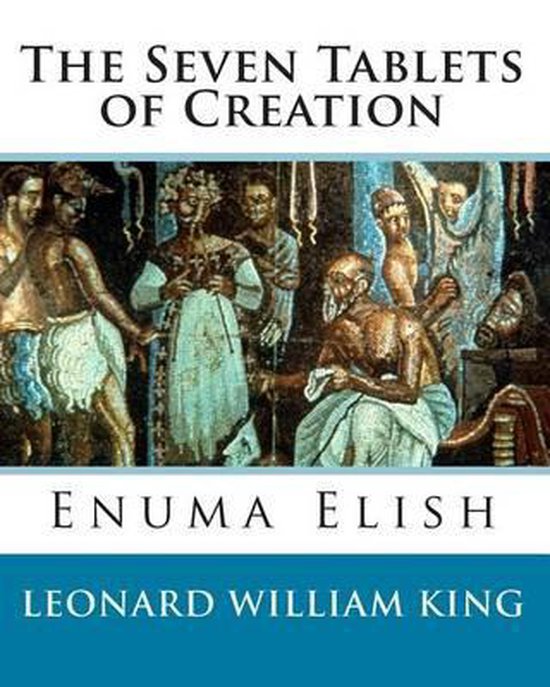
The Seven Tablets of Creation
The Enûma Eli is the Babylonian creation myth recovered by Austen Henry Layard in 1849 (in fragmentary form) in the ruined Library of Ashurbanipal at Nineveh (Mosul, Iraq), and published by George Smith in 1876.The Enûma Eli has about a thousand lines and is recorded in Old Babylonian on seven clay tablets, each holding between 115 and 170 lines of text. When the 7 tablets that contain this myth were first discovered, evidence indicated that it was used as a "ritual" myth, meaning it was recited during a ceremony or celebration. That celebration is now known to be the Akitu festival, or Babylonian new year. This myth tells of the creation of the world, and of Marduk's triumph over Tiamat, and how it relates to him becoming king of the gods. In Enuma Elish, the gods consult before creating man (6:4), while Genesis has: "Let us make man in our own image..." (Genesis 1:26) - and in both, the creation of man is followed by divine rest.This epic is one of the most important sources for understanding the Babylonian worldview, centered on the supremacy of Marduk and the creation of humankind for the service of the gods.
| Auteur | | L W King |
| Taal | | Engels |
| Type | | Paperback |
| Categorie | |